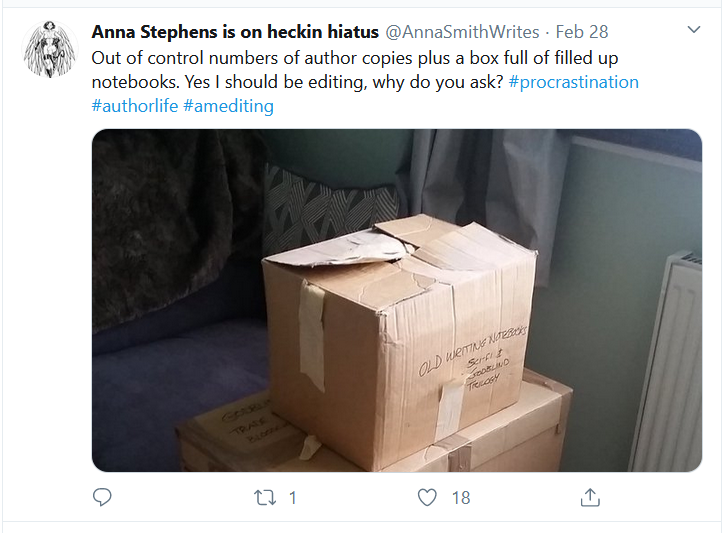In my last #PenPower post we got to meet the heroes who will be going up against the darkest force in the universe (writerly blockages). This time we'll explore in some detail what it is writers are afraid of.
A quick practical intermission: This post was supposed to go live Saturday 29.02. instead of March 1. Apologies. If you're reading on Bleeding Fool it's probably already Monday or Tuesday. There appears to be a slight lag due to time zones that I'm intending to get under better control for the remainder of the series.
The intent with PenPower Project is to post once a week (more on this below) on Friday (Saturday/Sunday if you're reading on Bleeding Fool). This post is also a bit of a unicorn.
Here is a list of the posts (and topics) updated regularly:
1: #PenPower Myth Debunk #1: Write Every Day
2: #PenPower Myth Debunk #2: I have to write FAST!
3: #PenPower #3: Rules and Fear (How to beat your writerly worries)
4: #PenPower Myth Debunk #4: I MUST outline
So without further ado, let's delve into the what, how, and why of writing fears!
PenPower 1.2 The Villain
Don't think she's a villain because she has books? Look more closely! The books are all empty!
There are plenty of things to worry about when starting a new story/project. There are even more when you're already halfway into the fledgling novel/short story/novella and the plot/characters/circumstances aren't coming together. And then yet more when you've finished the first draft and realize it's a pile of nonsense you somehow have to make work in a painful weeks-long edit.
To find out the most juicy writerly fears I've both run a survey (still available here: What are your writing fears? Leave a comment!) and scoured the le ole internet for those writerly posts and comments that sound the most like panic.
PenPower's writing heroes are no immune to this either! Here are some examples courtesy of our sometimes-despairing heroes:
(There are more colourful ones by Anna but I'm trying to keep this post PG. Check out her twitter @AnnaSmithWrites if you're interested!)
All in all the reasons for writerly despair are many:
THE BLANK PAGE.
THE (confusingly/messily/makes-no-sense) FILLED PAGE.
What if it's not good enough?
What if I'm never able to finish it? I've been working on this for ten years and it's not complete!
What if it's not original enough?
Is my process wrong? Should I be doing X? Should I stop using adverbs entirely? Do I need the Oxford comma? (Hint: You do, whatever everyone else says, the Oxford comma makes things prettier whenever you use it!)
I don't know where I'm going! How can I write it?!
I'm a perfectionist. Will I ever be able to write this well enough?
I'm blocked. The middle sucks. What should I do? I can't take time off work to iron out these kinks!
Have worries like these been circling around in your head (perhaps for years)? Have you been stressing out about your writing works in process? If you're worried about any aspect of your writing then this post is for you.
1.2.1 The form of #PenPower Project series: We have collected twelve authors who will be helping us debunk the above and more myths and terrors that like to sit on writers' shoulders and whisper unpleasant nothings into their ears. The form this debunking will take are author interviews. I've found 8 juicy questions relating to fears to put to our 12 author/editor superheroes. We'll be debunking one of these prevalent writing myths per week = 8 weeks of fortifying posts! It'll be part making you feel more comfortable with your writing style/writing pace/ideas and part superhero training camp. Soon enough your own novel will hit the shelves! (Disclaimer: Don't hold me to this. You have to put in some blood sweat and tears yourself to make this work!). We'll be busy well into April!
Next week (Saturday the 7th) we'll be starting off with one of the most horrifyingly rigid myths: Write. Every. Day.
Has anyone else ever felt this rule is much too rigid? That your brain NEEDS time off from being creative and just consume... say Amazon Prime's new short film series inspired by Simon Stålenhag's art book? Or maybe it's a rewatch of Community you need. Some writers call this filling the well. I call it being a well-rounded character. All other professions get time off. Why shouldn't writers? And then there's the fact that some of our superheroes only write once a week/month or perhaps two months out of twelve!
Stay tuned to find out more next Saturday!














